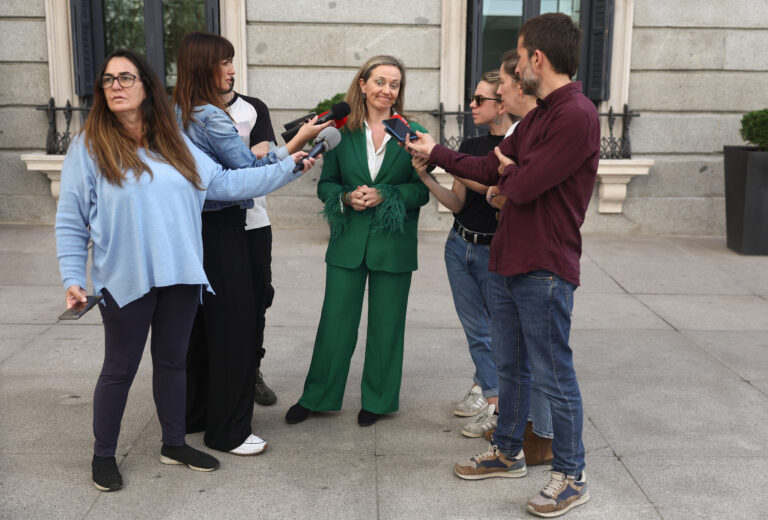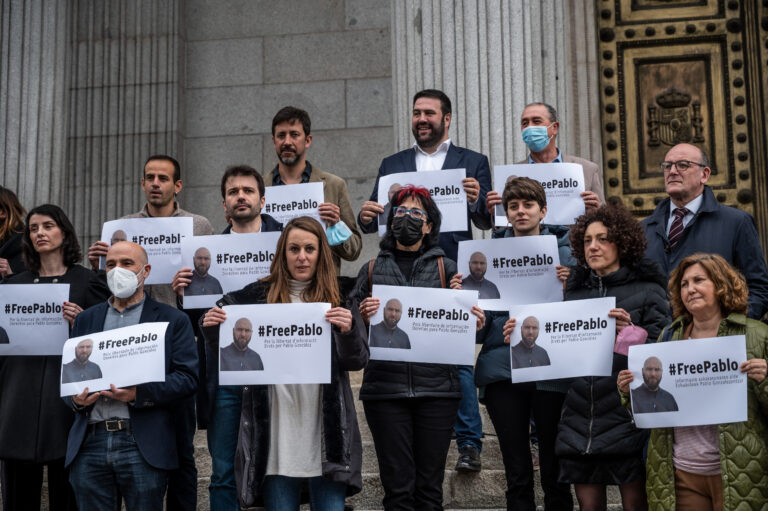Mayte Carrasco describes insults and threats after speaking about fundamentalists.
This statement was originally published on freemedia.at on 11 February 2014.
By: Javier Luque, IPI Digital Media Coordinator
“What is amazing is that I am forced to feel brave to do my job here, at my house,” Spanish journalist Mayte Carrasco, who has covered major conflicts worldwide over the past eight years, says.
She made that statement within hours after she received more than 100 insulting and threatening messages through Twitter following the primetime, Jan. 20 broadcast of a documentary about Islamic fundamentalism that included comments by Carrasco.
The journalist says five anonymous Twitter accounts that were “perfectly coordinated with each other” directed verbal abuse at her, including accusations that she was a “bastard” and a “liar”. She said the purpose was to intimidate her. “Those who have covered all the Arab revolutions know how far [Islamic fundamentalists] can go and [that they] have no problem in transferring the war beyond its borders,” she comments.
The reporter decided to take her case public to encourage “other colleagues who are also being harassed on the Internet” to step forward and “ask European authorities to act to end the anonymous threats on social networks”.
Hers is not the only case recently reported. The free expression group Index on Censorship announced that it recorded 31 cases of trolling and online bullying directed at journalists in Europe between May and December 2014 alone.
In a recent survey of journalists conducted by the University of Lancashire (UK), 70 percent of the 87 respondents reported having received insults through Twitter in relation to their work. More than half of the incidents were said to have included personal insults, while 27 percent consisted of threats. According to the report, journalists’ most common reactions to receiving abuse were responding directly to the offending users, blocking the accounts from which the insults emanated, and, in a few cases, deleting the tweet that provoked the abuse.
Some of Carrasco’s colleagues have played down the insults, she says, telling her that these trolls – users dedicated to insult and slander in social networks – have been around for a long time. But she maintains: “They exist because we do not denounce them and let such crimes go unpunished, to the point of reaching physical threats.”
In fact, Carrasco received two death threats in May last year at the time of the publication of her first book, a novel about the origins of the current war in Syria. She says two of them remain stuck in her mind: “In the twilight of your days you will hear from us” and “You will feel it in your body”. Carrasco notes that the Twitter user who posted these messages deleted them just as she decided to report the case to the Spanish authorities. But, she concludes: “They released these threats. They eventually erased them, but left these words in me and in my mind”.



